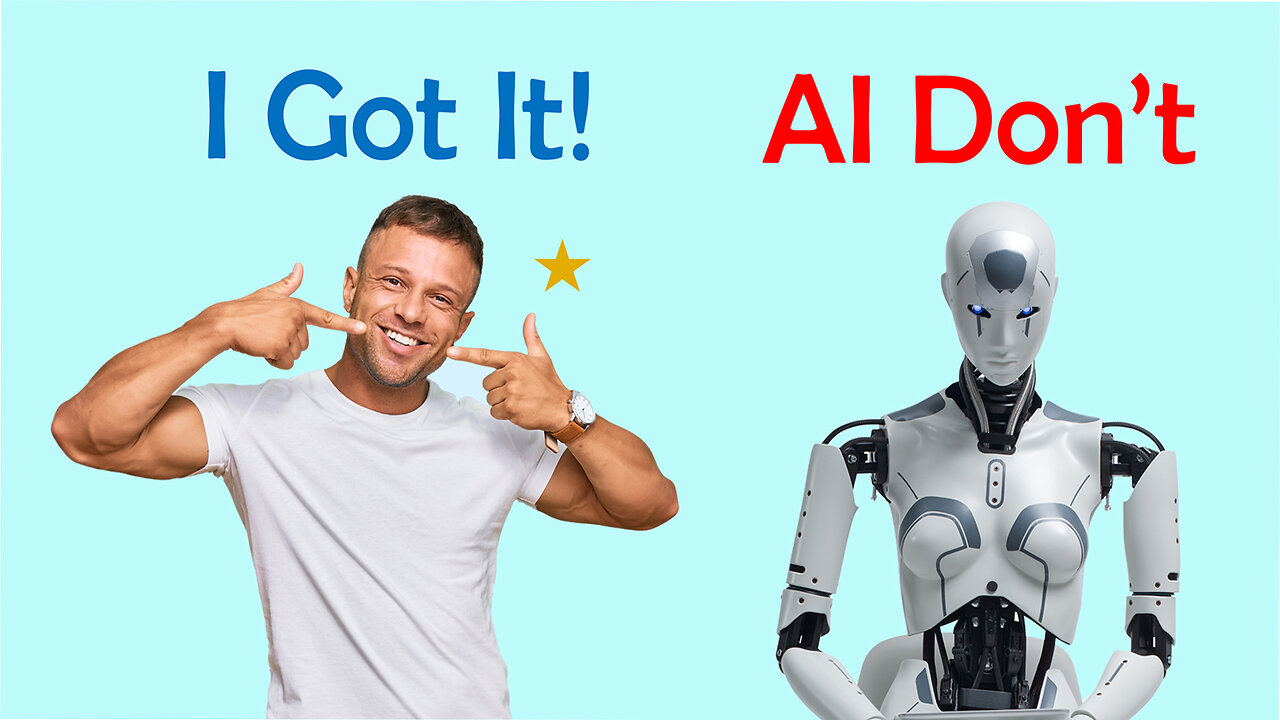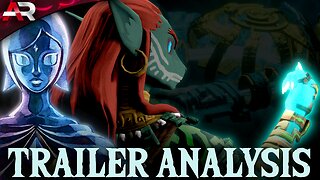Premium Only Content

The AI Paradox: What Artificial Intelligence Can’t Do (But Humans Can)
In this video, we explore the limitations of artificial intelligence (AI) in various domains, including ethical reasoning, creativity, and emotional intelligence. We contrast these limitations with the nuanced capabilities of humans, and we discuss the potential for human-AI collaboration.
What you will learn by watching the video:
1. AI's limitations in understanding and responding to complex emotions: AI is good at recognizing emotions in text and speech, but it struggles to understand the nuances of human emotions. For example, AI may be able to identify that someone is feeling sad, but it may not be able to understand why they are sad or how to help them.
2. AI's and creativity: AI is making great strides in creativity, maybe even pushing past previous boundaries. There are questions if AI is really creative, is it really coming up with new ideas or are these advances an artifact of increased training data volume.
3. AI's difficulty making ethical decisions: AI is good at following rules, but it struggles to make ethical decisions in complex situations. This is because AI does not have the ability to understand the emotional and cultural context of a situation.
4. AI's difficulty understanding contextual understanding: AI is good at understanding data and patterns, but it struggles to understand the context of a situation. This is because AI does not have the ability to understand the emotional and social factors that are often involved in decision-making.
5. AI's difficulty adapting to new situations: AI can be adapted to new tasks, but it requires retraining. This is because AI is not as adaptable as humans, who can learn new things quickly and easily.
Keywords
AI limitations, AI creativity, AI ethics, AI emotional intelligence, Human intellect, Human-AI collaboration, Contextual understanding, Ethical reasoning, Adaptability, Nuanced capabilities, Future of AI, Machine learning, Natural language processing, Deep learning, Reinforcement learning, Artificial general intelligence (AGI), Artificial superintelligence (ASI), Technological singularity
Condensed Video Script:
One of the biggest limitations of AI is its lack of creativity. AI can be good at generating new text or images, but it can't come up with truly original ideas. This is because AI is trained on data that is already created by humans. So, even though AI can generate new things, it's always based on something that already exists.
Another limitation of AI is its difficulty making ethical decisions. AI is good at following rules, but it can't always understand the nuances of human ethics. For example, AI might be able to identify that a certain action is illegal, but it might not be able to understand why that action is wrong.
Finally, AI also struggles with emotional intelligence. AI can recognize emotions in text and speech, but it can't understand the nuances of human emotions. For example, AI might be able to identify that someone is feeling sad, but it might not be able to understand why they are sad or how to help them.
Despite these limitations, AI still has a lot to offer. AI can be used to automate tasks, generate new ideas, and make predictions. And when AI is combined with human intelligence, it can be even more powerful.
For example, AI can be used to analyze large amounts of data to identify patterns that humans might miss. And AI can be used to generate new ideas that humans might not have thought of.
So, while AI has its limitations, it's still a powerful tool that can be used to complement human intelligence.
-
 LIVE
LIVE
FyrBorne
1 hour ago🔴Warzone M&K Sniping: Drop In For Battlefield 6 Info From The Event
4,727 watching -
 UPCOMING
UPCOMING
Game On!
13 hours agoMicah Parsons Wants OUT of Dallas! Jerry Jones LOVES This!
100 -
 29:00
29:00
DeVory Darkins
11 hours ago $3.00 earnedTrump smacks Russia with CHILLING WARNING Cincinnati officials EXPLODE over viral fight
5.92K26 -
 18:02
18:02
James Klüg
2 days agoConfronting Unhinged Protesters At Musk's Tesla Diner + Food Review!
1.98K5 -
 26:53
26:53
Scary Mysteries
23 hours agoThe Shoe Fetish Slayer: Jerry Brudos
42.8K4 -
 15:17
15:17
AndresRestart
19 hours agoVERY COOL Zelda Secrets Found In This Age Of Imprisonment Trailer!
4.78K -
 16:02
16:02
RTT: Guns & Gear
1 day ago $0.07 earnedIs The Ramblin Man The Quietest .46 Cal Suppressor? Resilient Suppressors
8.92K4 -
 1:03:12
1:03:12
The Quiet Part
4 days agoMuslim Values Are Canadian?” Canada's DARK SECRET: Two-Tier Justice & the Rise of Sharia Law
7.5K60 -
 7:38
7:38
The Shannon Joy Show
13 hours ago🔥Hidden in Plain Sight: Sex Trafficking, Big Tech, and Section 230 Immunity🔥
2.63K3 -
 10:24
10:24
Gun Drummer
20 hours agoGun Drummer x Twista: Guns and Talking Smack (Uncensored)
5.55K2